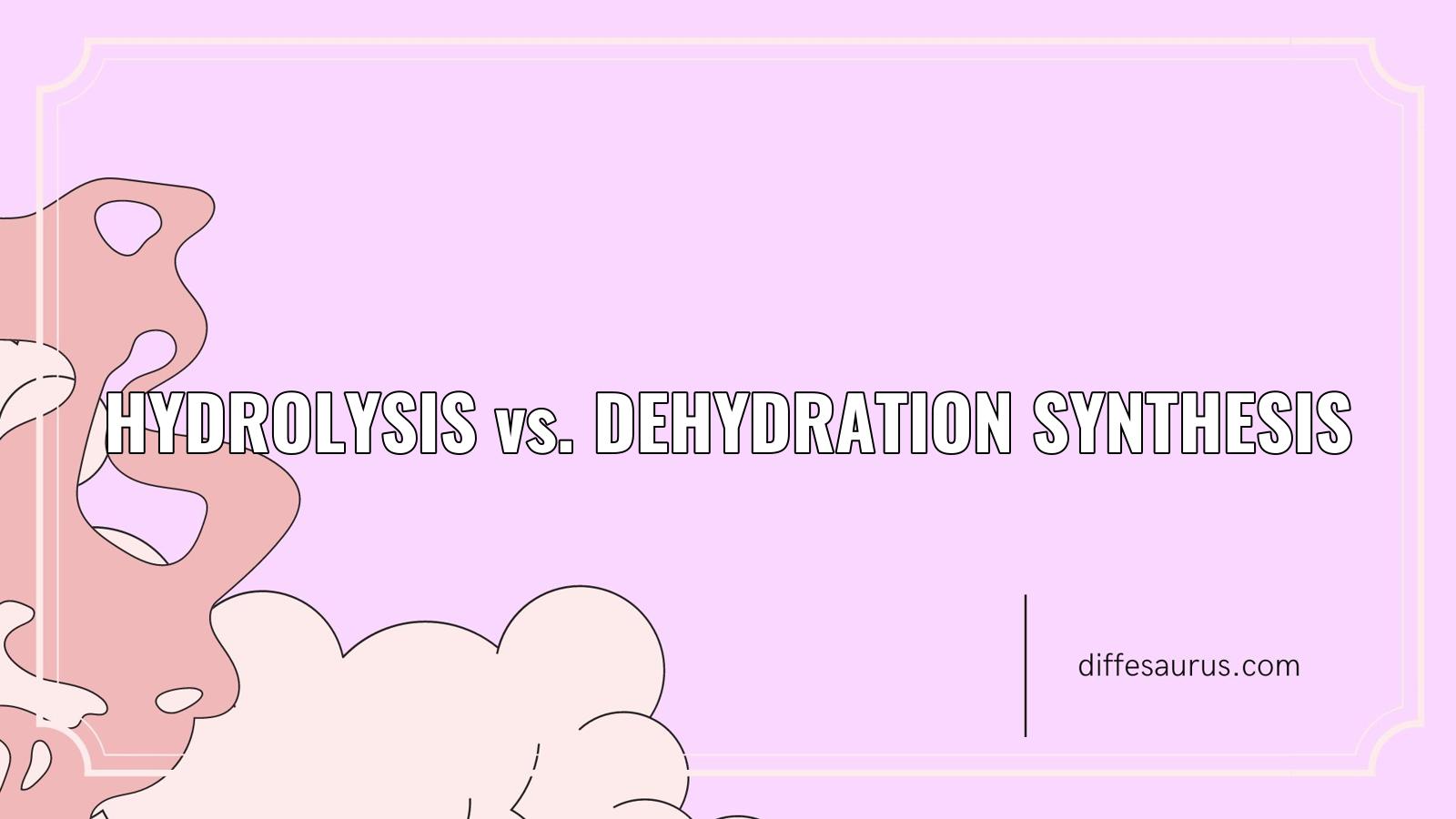The main reactions used in organic synthesis procedures are hydrolysis and dehydration.
In very different ways, hydrolysis and dehydration synthesis deal with water. In relation to each other, they have a reverse reaction. These processes in biology involve the formation of Polymers, which are linked together. These are formed when water is removed from a chemical equation. Water must be added to the equation in order for bonds to be broken. The difference between dehydration synthesis and hydrolysis is discussed in detail below.
What is the difference between dehydration synthesis and hydrolysis quizlet?
A water molecule breaks apart two monomers during dehydration synthesis. The water is a synthesis of water. The water is a result of the hydrolysis of water.
What is dehydration synthesis example?
Dehydration synthesis involves the loss of a water molecule with the formation of larger molecule from smaller reactants. Many dehydration synthesis reactions are associated with the formation of biological polymers where the addition of each monomer is accompanied by the elimination of a molecule of water.
What do hydrolysis and dehydration synthesis have in common?
Dehydration and hydrolysis reactions are the same for all macromolecules, but they are different for each reaction. Dehydration reactions require an investment of energy in order to form bonds.
What is the relationship between dehydration and hydrolysis?
The main difference between dehydration synthesis and hydrolysis is that dehydration synthesis results in the formation of a large molecule out of smaller ones.

How are dehydration synthesis and hydrolysis related quizlet?
The OH is taken from the other and the H is taken from the other in the bonding process. The OH and H were taken to bond, but this frees up a spot for the other molecule. The OH and H bonds are needed to make a molecule of water.
What are the two difference between dehydration synthesis and hydrolysis?
The formation of a larger molecule with the release of water is known as dehydration synthesis. Two or more smaller molecule form bonds with each other and release a water molecule per each bond The reactants and the final products of synthesis of dehydration reactions are always complex. TheDehydration synthesis reaction is a type of synthesis reaction.
What is an example of dehydration synthesis and hydrolysis?
Dehydration is an example of the formation of nucleic acid from nucleotides. The reverse reaction of a dehydration synthesis reaction can be considered hydrolysis. Adding water with bonds to form more than one substance from the same substance is called adding water with bonds.
Is dehydration synthesis the same as hydrolysis?
The difference between dehydration synthesis and hydrolysis reactions is that water is used to breakdown the polymers into their final form. There are reactions that break bonds and release energy. The macromolecules are absorbed by the cells and then broken down to release energy by the body.

What is the relationship between hydrolysis and dehydration reactions?
Which is the best way to describe dehydration reactions and hydrolysis? Dehydration reactions remove water from the lipids and make them impermeable to water. Dehydration reactions can only happen after the process is completed. Heterogeneity reactions break down the polymers. Dehydration reactions oxidize water and add hydroxyl groups to it.
What are the similarities and difference between dehydration and hydrolysis process?
Dehydration is the removal of water with the help of dehydrating agents. Water molecule(s) are added Water molecule(s) are removed is a decomposition.



